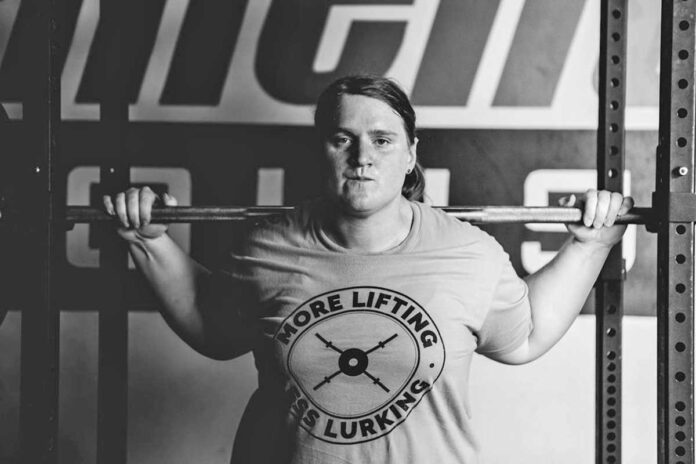Trans advocates are hailing a recent court ruling in favor of JayCee Cooper, a Trans powerlifter. Since 2019, Cooper has been denied the opportunity by USA Powerlifting to participate in powerlifting competitions sanctioned by the organization.
At a time when Trans rights are under attack in schools, state legislatures and other venues, the ruling comes as a victory for Trans people and their allies.
“It feels like we’ve been going backward on this issue,” said Christy L. Hall, an attorney for Cooper. “People haven’t been willing to directly confront the anti-Trans agenda on this issue. [This ruling] sends a message to any kind of sports competition: If they’re going to hold sports competitions in Minnesota, they have to follow the law. It also communicates a similar message to everyone else.”
According to her Jan. 12, 2021, lawsuit, Cooper has been denied the ability to compete in USA Powerlifting events in the women’s category since 2019. USA Powerlifting allegedly violates Minnesota’s Human Rights Act, which bans discrimination on the basis of LGBT status.
Cooper, 35, lives in Minneapolis. For the past two years or so, she’s been able to participate in powerlifting competitions in some venues that aren’t sanctioned by USA Powerlifting, according to court papers.
The 26-page antibias lawsuit was filed on behalf of Cooper by Gender Justice, a nonprofit legal and policy advocacy organization based in St. Paul that seeks to eradicate gender inequity.
On Feb. 27, in a 46-page ruling, Minnesota state judge Patrick C. Diamond opined that USA Powerlifting violates Minnesota’s antibias laws by banning Cooper’s participation due to her LGBT status. Diamond scheduled a hearing for May 1, 2023, to determine the amount of damages that should be awarded to Cooper.
“Judge Diamond’s ruling was thoughtful, thorough and well-reasoned,” added Hall. “The ruling makes it possible for JayCee and other Trans athletes to compete with USAPL in the future. It also provides notice to other sports competitions in Minnesota that exclusionary rules violate Minnesota law, and it hopefully sets a positive example across the country in favor of inclusion and in support of Trans athletes.”
USA Powerlifting couldn’t be reached for comment. According to published reports, the organization is considering filing an appeal with a higher court.
Diamond rejected USA Powerlifting’s defense of purportedly needing to show “fairness” to so-called “biological women.” The judge noted that Minnesota’s antibias laws don’t contain any such “fairness” provision. “Performance advantage [for Trans women] is not a reason recognized under the [Minnesota antibias law] to discriminate because of sexual orientation or sex,” Diamond wrote.
But Diamond also noted it’s wrong to assume Trans women have an unfair advantage over other competitors. He pointed to the increased risk of depression and suicide faced by Trans athletes — who often have difficulty finding a coach or a venue to practice their sport. He said a more inclusive policy would help Trans powerlifters improve their fitness, reduce the side effects of medications and have increased feelings of acceptance and well-being.
Moreover, Diamond emphasized the emotional harm inflicted upon Cooper by denying her participation. He said any efforts by USA Powerlifting to organize separate competitions for Trans women would be unacceptable.
Diamond gave USA Powerlifting 14 days to “cease and desist” discriminating on the basis of LGBT status.
“If USAPL doesn’t follow the court’s order, JayCee can go back to the judge and seek additional enforcement measures from him,” Hall continued. “Once damages are determined and there is a final judgment in place, USAPL can appeal to the Minnesota Court of Appeals. That process starts with a Notice of Appeal within 60 days of the entry of judgment. Following a ruling from the Minnesota Court of Appeals, a losing party can petition for the case to be heard by the Minnesota Supreme Court. The Minnesota appellate courts are the final word on interpreting the Minnesota Human Rights Act. We feel confident that the Minnesota appellate courts will agree with Judge Diamond’s well-reasoned opinion.”
In a news release, Cooper praised Diamond’s ruling. “I am thrilled that this ruling recognizes our rights and our humanity and hopefully opens doors for Transgender athletes everywhere to participate fully in sports,” she said.
C.P. Hoffman, senior policy counsel at the National Center for Transender Equality, also praised the ruling. “Everyone deserves the right to participate in sports and do what they love without discrimination,” Hoffman said, in an email. “As the court ruled, USA Powerlifting’s policy to exclude Transgender women from participating in the sport was based entirely on discriminatory intent, rather than on any real evidence. In a climate where extremist politicians tell Transgender people, especially Transgender women and girls, that they don’t belong, this court decision states clearly that Transgender women like JayCee Cooper deserve to participate alongside other women as their peers.”
JoAnna Hoffman, communications director for Athlete Ally, expressed support for Cooper and commended Gender Justice.
“We are thrilled that Athlete Ally ambassador JayCee Cooper has won her case against USA Powerlifting,” Hoffman said, in an email. “In the face of heartbreaking discrimination, JayCee refused to be silent and fought for not only her own right to participate in the sport she loves, but also the rights of other Transgender women athletes across the country. We are grateful to her and her brilliant counsel at Gender Justice.”
